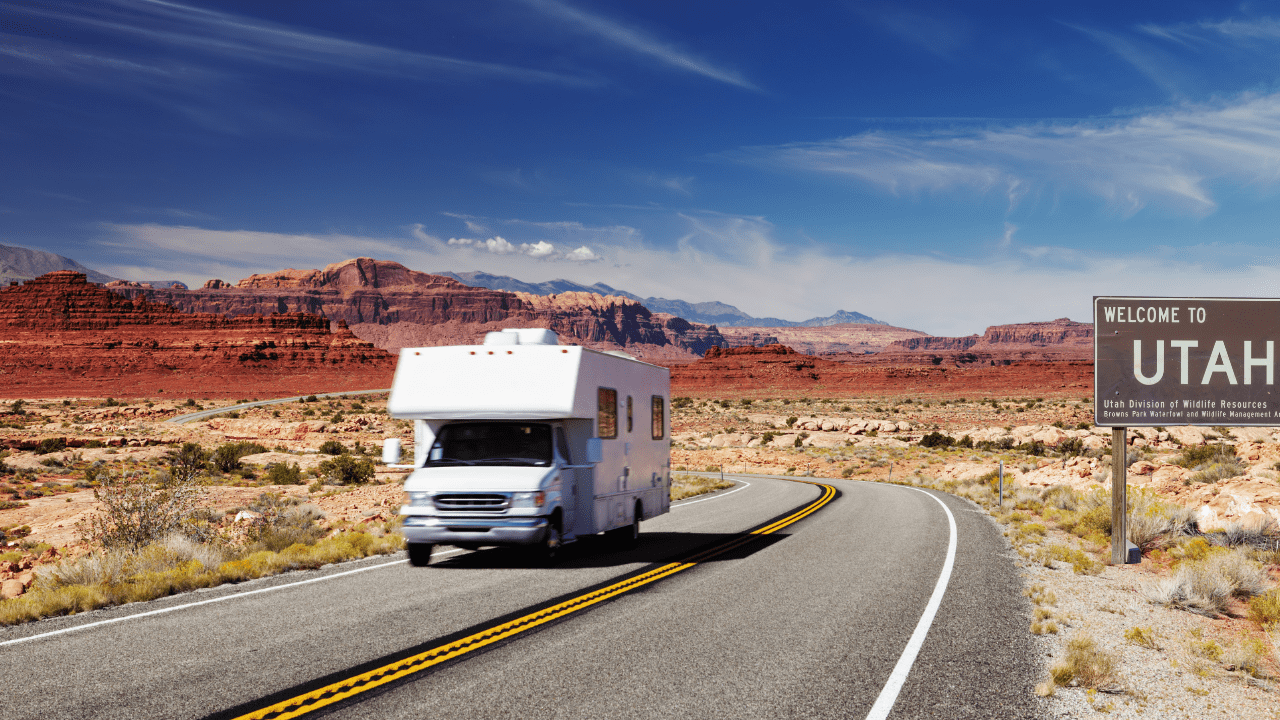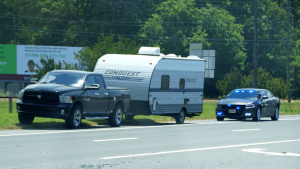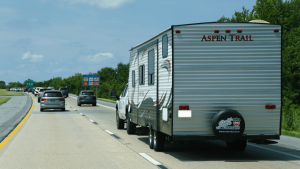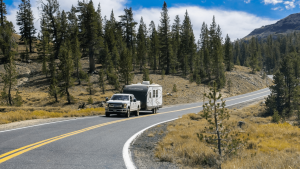Crossing a border in an RV can quietly switch the rulebook on you. What you bought or carried legally yesterday might be restricted the moment you roll into the next state.
Before you set out, it pays to know which items can cause problems on your trip. Here are ten things that could get you into trouble if you’re not paying attention.
1) Firearms and other weapons
Federal law (the Firearm Owners’ Protection Act) gives limited protection to people transporting firearms from one place where they are legal to another, provided the gun is unloaded, locked, and stored separately from ammunition. This is often called the “peaceable journey” rule. However, that protection is narrow and does not override all state or local laws. Permit recognition varies, magazine and feature bans exist, and some parks and private campgrounds prohibit firearms entirely.
What to do:
- Transport unloaded, locked, and separate from ammo unless the destination state’s laws specifically allow otherwise.
- Verify permit reciprocity and local restrictions before you leave.
- Check campground or park firearm rules in advance.
- Visit official state websites or consult state attorney general resources for the most up-to-date laws.
2) Fireworks
Fireworks are regulated state by state. Fireworks legal to buy in one state can become contraband the moment you cross a line, leading to confiscation or a ticket. Some states allow only items like sparklers, while others permit aerial displays. Even within a state, city and county rules can vary.
Even if you can legally carry them across state lines, some parks and public lands prohibit them outright, so keep that in mind if you plan to take some to your campground.
What to do:
- Assume you must buy locally, where you plan to use them, if they are legal at all.
- Read the rules for any public land or campground you’ll visit.
3) Firewood
Untreated firewood spreads invasive pests such as the emerald ash borer. Many states ban bringing in outside wood or limit how far you can move it. Others allow only certified, heat‑treated bundles. Transporting infested wood can not only result in fines but can also contribute to environmental damage. Just don’t do it.
What to do:
- Buy firewood at or near your destination.
- If you see “heat-treated” or “kiln-dried and stamped,” you are usually on safer legal ground, but still confirm with the state or park.
- Check campground policies online before arrival.
4) Marijuana and other federally controlled substances
Cannabis remains illegal under federal law (at the time of writing this), and crossing state lines brings federal jurisdiction into play, even if both states allow recreational or medical use. That creates legal exposure regardless of state-level protections. Penalties vary depending on the state and the amount involved. Other controlled substances face similar issues when transported without proper documentation.
What to do:
- Do not take cannabis across state lines.
- Even between neighboring states with similar cannabis laws, border crossing can expose you to federal enforcement.
- If you use medical cannabis, check program rules and speak with a legal professional before traveling.
5) Alcohol
States and even counties treat transport and possession differently. Some have no restrictions, while others have strict open container laws or volume limits. Local dry counties may ban possession entirely. And don’t forget that Customs rules apply if you travel in or out of Canada and Mexico.
What to do:
- Keep alcohol sealed and stored away from passengers unless state law specifically allows otherwise.
- Check rules for dry counties and quantity restrictions if your route includes border crossings.
- Unsealed or partially consumed bottles should always be treated with caution when crossing jurisdictions.
6) Prescription medication
Traveling with medication that was prescribed to someone else can lead to legal trouble, particularly if it involves controlled substances. To avoid complications, keep all medications in their original containers with clear pharmacy labeling. If you’re responsible for carrying medication for another person, it’s a good idea to also have a written note from the prescribing doctor or documentation from the pharmacy that explains your role. This can help clarify your authority if questions arise.
What to do:
- Keep prescriptions in original, clearly labeled containers.
- Carry a copy of the prescription or a doctor’s note for any controlled substances.
- Never travel with medication prescribed to someone else.
- If you’re crossing a national border, review customs and health agency guidance in advance.
7) Plants, produce, soil, and agricultural items
States and the USDA restrict the movement of plants, seeds, fruits, vegetables, and soil to slow the spread of pests and diseases. California, Florida, and Arizona often have staffed agricultural inspection stations on major highways. In fact, I stopped at an agriculture inspection station in Blythe, CA, where they asked if I had fruits and vegetables, and even asked about firewood.
What to do:
- Declare agricultural items when asked.
- Buy plants and produce locally if unsure.
- Leave soil, potted plants, and nursery stock at home unless you’ve reviewed the rules for each destination.
8) Radar detectors and laser jammers
Radar detectors are banned for all drivers in Virginia and Washington, D.C. Federal law prohibits their use in commercial vehicles over 10,000 pounds. Laser jammers face separate bans in multiple states, including California and Texas. Mounting detectors on the windshield is also illegal in some areas due to visual obstruction laws.
What to do:
- If you’re heading into Virginia or D.C., remove and store your detector.
- If your RV or tow vehicle qualifies as a commercial motor vehicle, do not use one at all.
- Penalties can include fines and confiscation of the device.
9) An RV that legally requires a higher class of license
A standard driver’s license covers most RVs, but some states require a noncommercial Class A or B license, or even a CDL, based on vehicle weight or combined weight with a trailer. Failing to meet these requirements could result in citations or even vehicle impoundment.
What to do:
- Know the gross vehicle weight rating (GVWR) of your RV and any trailer.
- Check license class requirements for the state you live in.
- If you rent an RV, confirm with the rental company that your license is sufficient.
10) State-specific driving rules
States vary widely on speed limits, seat belt laws, use of cell phones, and permission to ride in towed vehicles. California, for example, requires a maximum trailer speed of 55 mph. Other states enforce hands-free phone laws that can differ even between cities. These inconsistencies can, unfortunately, lead to stops and fines.
What to do:
- Check each state’s DMV or DOT website for quick-reference rules on driving with trailers, passenger safety, cellphone use, and towing speeds.
- Recheck the laws if your route changes at the last minute.
- Review this list of illegal things RVers do without realizing it
A quick way to stay out of trouble
- Map your route and list every state you will enter, even briefly.
- For each, verify firearm laws, alcohol limits, license class requirements, agricultural rules, and local traffic laws.
- Skip firewood, plants, and cannabis altogether unless you’re sure it’s allowed.
- Carry only your own prescription medications in clearly labeled containers.
- Keep radar detectors off and stored when entering restricted areas.







Write a comment